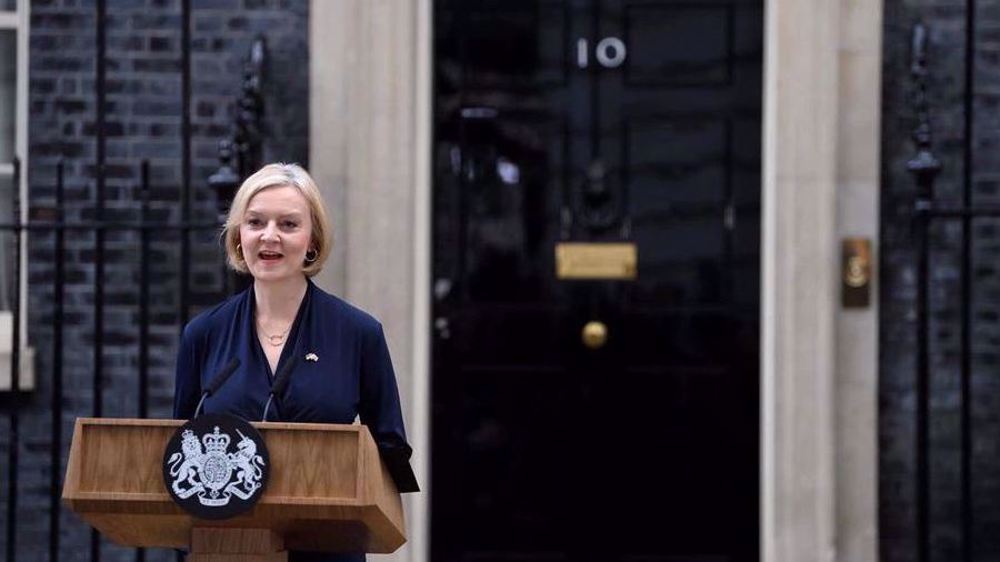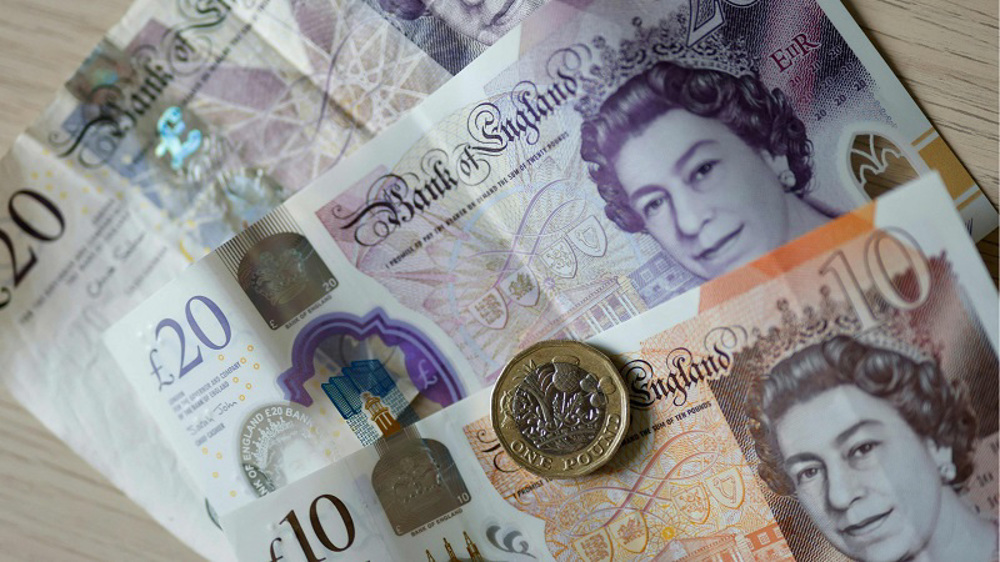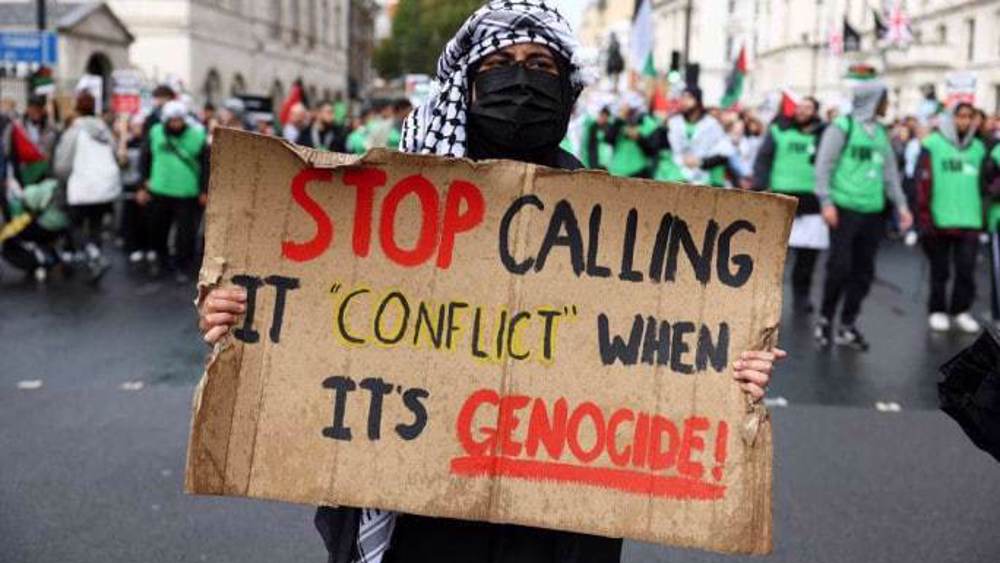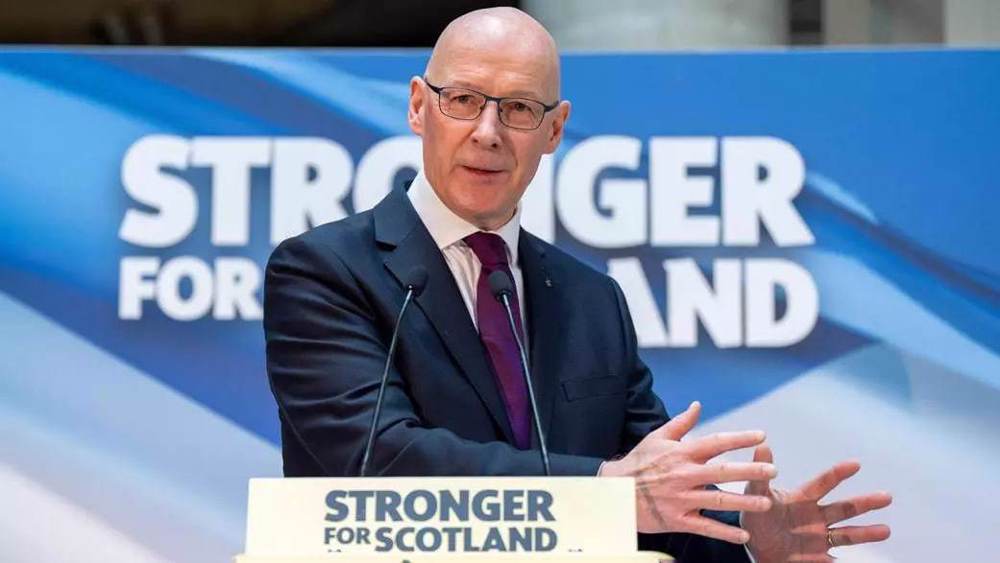Liz Truss resigns as British prime minister after Conservative revolt
Liz Truss, the embattled British prime minister, has resigned, just six weeks after she was appointed the prime minister.
Speaking outside the door of her Number 10 Downing Street office in London on Thursday, Truss said that she could not deliver on the promises she made when she ran for Conservative leader, Reuters reported.
"I recognize though, given the situation, I cannot deliver the mandate on which I was elected by the Conservative Party. I have therefore spoken to His Majesty the King to notify him that I am resigning as leader of the Conservative Party," she said.
"This morning I met the chairman of the 1922 Committee, Sir Graham Brady. We've agreed that there will be a leadership election to be completed within the next week. This will ensure that we remain on a path to deliver our fiscal plans and maintain our country's economic stability and national security," she added.
"I will remain as prime minister until a successor has been chosen. Thank you."
She was brought down by her economic program that sent shockwaves through the markets and divided her Conservative Party.
More than a dozen Conservative MPs have publicly called onTruss to step down, after her tax-cutting plans caused a market meltdown during an already severe inflation crisis.
Many more were reported to have submitted letters to Brady urging her to be removed.
"The prime minister acknowledges yesterday was a difficult day and she recognises the public wanted to see the government focusing less on politics and more on delivering their priorities," her official spokesman told reporters.
Barely two hours later, she resigned, to be completed in the next week.
Truss was elected by the Conservative membership in September, but she lost authority after a series of U-turns.
Recent polls show her personal and party ratings have cratered dramatically, with one poll saying that she had become the most unpopular leader it has ever tracked.
A leadership election will be completed within the next week to replace Truss, who is the shortest serving prime minister in the country's history. The second shortest serving British PM was George Canning, who served for 119 days before dying in 1827. Her successor will be the third prime minister to lead Britain this year.
Truss has apologized for her government's policy "mistakes" that crashed the country’s currency and rattled financial markets, but turned down calls to step down.
In an interview with the BBC on Monday, Truss vowed she would lead her party into the next general election, despite mounting pressure from investors and her own party members since the controversial mini-budget was unveiled in late September.
"I do want to accept responsibility and say sorry for the mistakes that have been made," Truss said. "I wanted to act but to help people with their energy bills to deal with the issue of high taxes, but we went too far and too fast."
New chancellor of the exchequer Jeremy Hunt, who was appointed on Friday after Truss removed Kwasi Kwarteng, on Monday scrapped almost all of Truss's unfunded tax cuts and scaled back her vast energy support scheme.
Hunt estimated the tax changes would raise about £32 billion ($36 billion) in the forthcoming year and warned of tough spending cuts.
Hind Rajab Foundation files complaint against Israeli genocidal propagandist in US
VIDEO | Trump fighting allies on Greenland
Iran FM: Selective respect for deals now haunting Europe
Arab rights group urges UK to sanction Netanyahu over 'incitement to genocide' in Gaza
‘Political, non-constructive’: Iran slams UNHRC special session on recent riots
Forced evacuations in South Gaza as Israeli military expands control over land
Iran reports steep rise in exports after forex policy shift
Iranian bank loans up 47.2% y/y in Apr-Dec











 This makes it easy to access the Press TV website
This makes it easy to access the Press TV website